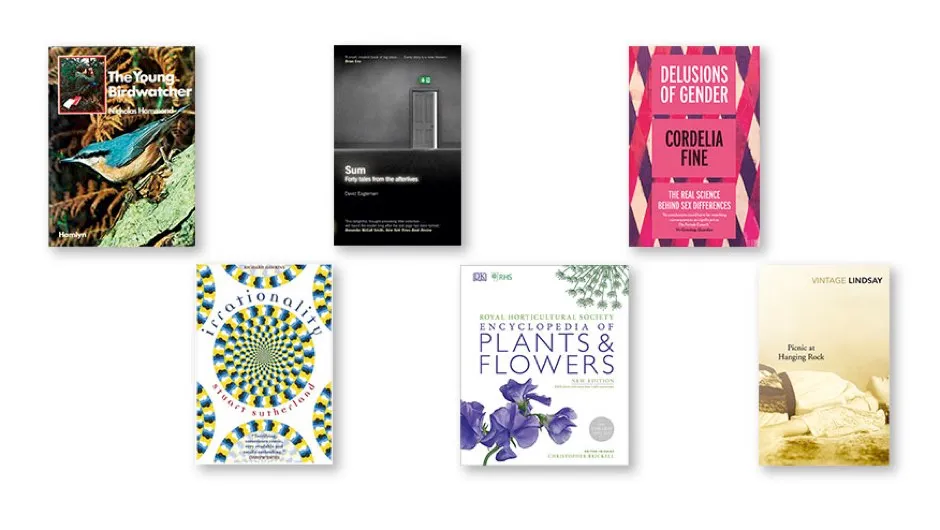For the Durham University Rest Test, we asked 18,000 people from around the world what they found the most restful, and reading came out on top. We were quite surprised, because reading is effortful. It beat things like listening to music, being out in nature, having a bath. I think the reason is that a book takes you out of the world you’re in. Reading is definitely restful for me.
When I was seven, my dad [Nicholas Hammond] wrote The Young Birdwatcher (1978). It made me realise that even people I knew could write books. My sister and I wanted to be the Brontë sisters. I don’t think we realised that things didn’t end well for them!
I found a notebook recently where, when I was young, I had graded the novels I read. The only book that got two red stars – which means very, very good – was Picnic At Hanging Rock (1967) by Joan Lindsay, I read it at 13, and it had a real impact on me.
It was about female friendship between these teenage schoolgirls who stood up to their strict teachers together. They go missing after a picnic, and I was completely bewitched by the mystery of not knowing what happened to them. It says at the beginning that it’s a true story, and in those days you couldn’t look on Wikipedia to find out. I was fascinated to know whether it was real, but I’ve since found out it’s not.
See morereading lists of thebest science books:
- Five of the best science books for kids
- Seven really, really big books about space
- Linguistics: 7 language science books to help you finally understand what comes out of your mouth
I actually prefer non-fiction to fiction, and my most memorable, most influential books, are non-fiction. When I was at Sussex University studying psychology, I read Irrationality (1992) by Stuart Sutherland. It’s all about cognitive biases in our thinking, and it was way ahead of its time. This book was influential on how useful psychology can be in our everyday lives.
Because there were more male authors than female authors when I was young, so many of my influential books end up being by men. But that will change as time goes on. If I was at university now, I’d be reading books like Cordelia Fine’s Delusions Of Gender (2010). It’s all about the science and the many myths of sex differences. It cuts through a load of assumptions that all of us make, all the time, about gender. In a way, this is the book I wish I’d written.

One fiction book that had quite an impact on me was Sum (2009) by David Eagleman. David is a neuroscientist and has written [nonfiction] books about popular neuroscience. But this is a collection of short stories, where each one is a different version of an afterlife. It’s so imaginative.
Gardening is the thing that I find most restful, and so a book I love now is the RHS Encyclopedia Of Plants And Flowers by Christopher Brickell. I’m constantly looking things up. I’m interested in the Latin names, and what else is it related to, and does it need to be in the sun or not? But it is hugely pleasurable, particularly in winter when there are not many flowers, to flick through it again and think of what’s coming.
The Art of Rest: How to Find Respite in the Modern Age by Claudia Hammond is available now (£16.99, Canongate)